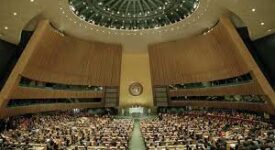Iraqi Kurds announced last week that they would organize a referendum on independence. Iraq is expected to oppose this move strongly – the leader of Iraq’s Shi’ite Ammar al-Hakim coalition had mentioned already earlier this year that it would be against any such referendum. Mr. al-Hakim especially warned the Kurds against any attempt to try to annex oil-rich Kirkuk.
The Kurdish leader Massoud Barzani who has been serving as President of Iraqi Kurdistan announced that the poll would take place on 7 July in the disputed region of Kirkuk and three other regions that are claimed by the central government – Makhmour in the north, Sinjar in the northwest and Khanaqin in the east.
As expected, the European Union supported the territorial integrity of Iraq yesterday (19 June). An EU diplomat said there was “hesitation” over the vote, because in his opinion the major concern was the stabilization of the country and of its institutions “within its territorial borders”. The diplomat also added that the Kurdish referendum would not be mentioned in the Council conclusions but the message to both the central authorities of Iraq and the Kurds would be that they need to make progress with the process of reconciliation, engagement and discussion.
While the EU emphasizes the notions of sovereignty, stability, territorial integrity, the EU diplomat also admitted, when speaking to a handful of journalists on Friday (16 June), that if some level of autonomy within the border of Iraq emerges from the referendum and the subsequent internal process, this would “a matter between them”. The United Nations commented that it would not intervene in the planned poll.







